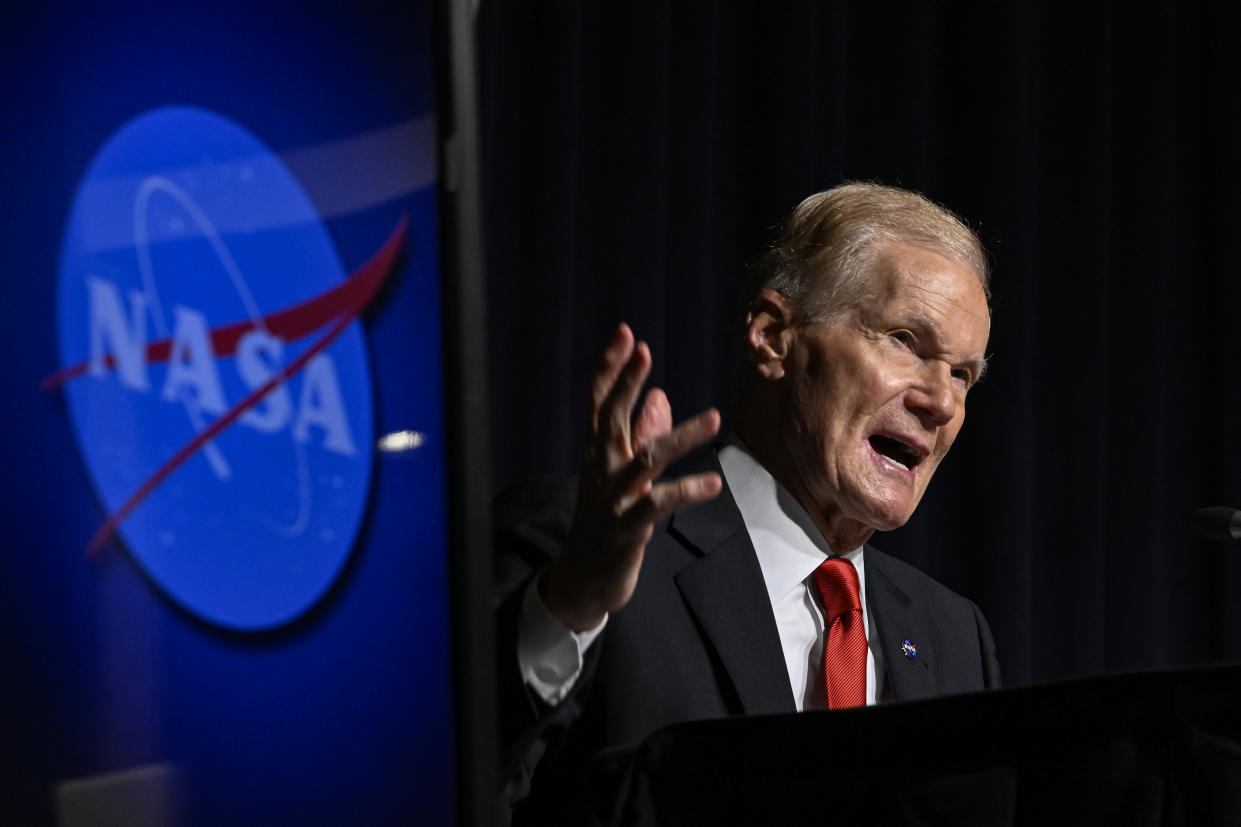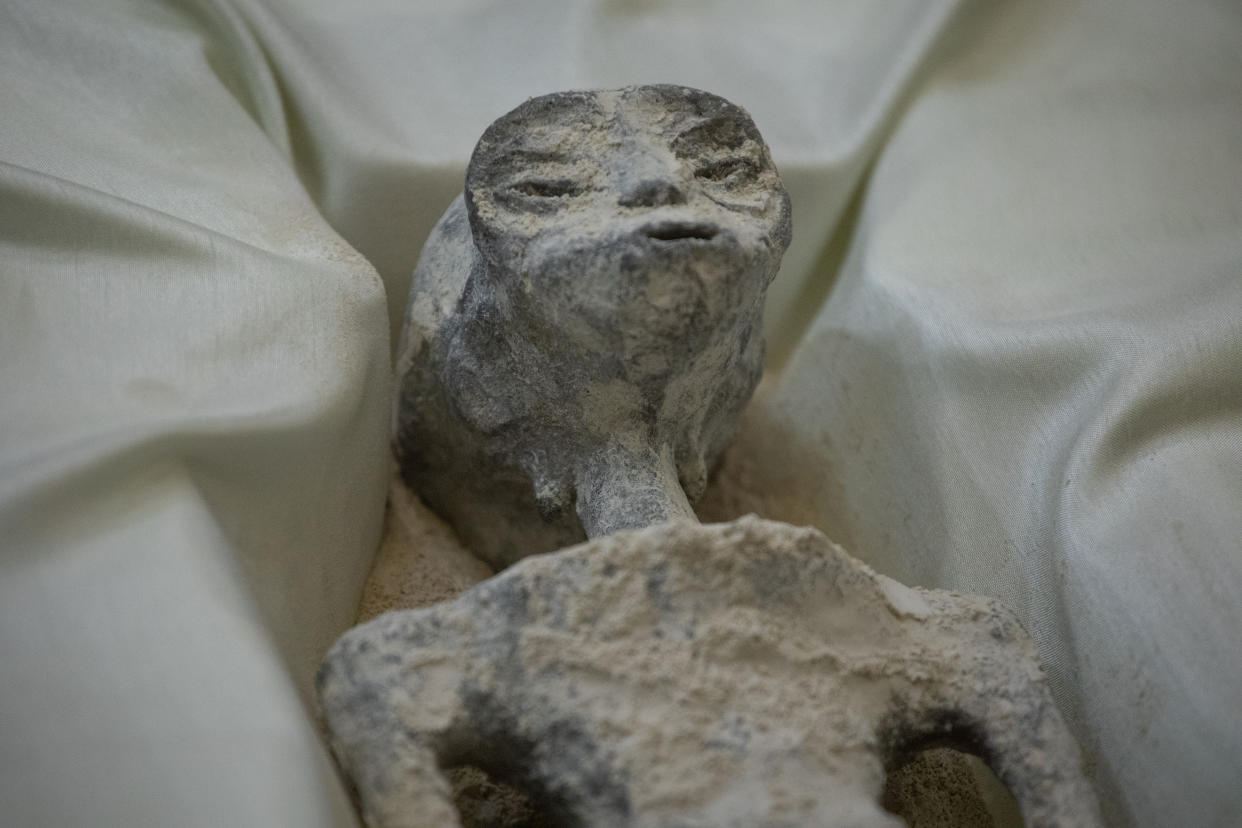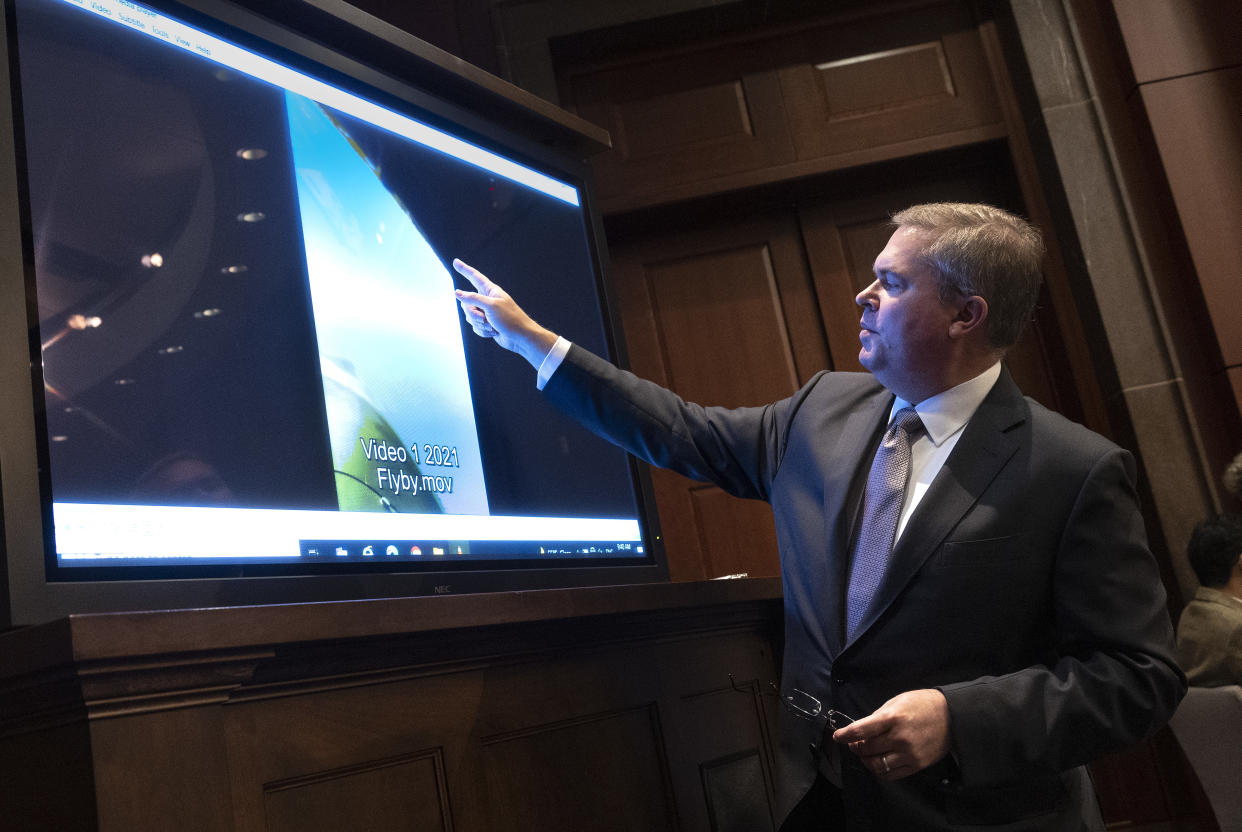Nasa says it will appoint secret UFO chief
NASA announced Thursday that it has created a new position to investigate UFOs following the release of a new report on Unidentified Anomalous Phenomena — or UAP, the preferred government terminology for mysterious objects seen in the sky
Speaking at a press conference in Washington, D.C., NASA Administrator Bill Nelson said the U.S. space agency would be transparent as it moved forward.
“The NASA independent study team did not find any evidence that UAP have an extra terrestrial origin, but we don't know what these UAP are,” Nelson said. “That's why I'm announcing that NASA has appointed a NASA director of UAP research. They are being tasked with developing and overseeing the implementation of NASA's vision for UAP research. We will use NASA's expertise to work with other agencies to analyze UAP.”
Read more on Yahoo News: What are UAPs, and why do UFOs have a new name?, via CBS News
However, the person in charge of UAP research for the agency will remain a secret due to fears that they could be harassed.
The announcement follows the Pentagon’s creation last year of the All-domain Anomaly Resolution Office, or AARO, as the U.S. government continues to take questions over the presence of UAP seriously in public hearings.
Government looks to reduce 'stigma' around UAP reports

Nelson said it was important to destigmatize the reporting of UAP in order to increase the amount of data available to investigators. In its report, the 16-person independent study group found that the “negative perception surrounding the reporting of UAP poses an obstacle to collecting data on these phenomena.”
“NASA’s very involvement in UAP will play a vital role in reducing stigma associated with UAP reporting, which almost certainly leads to data attrition at present,” the report continued. “NASA’s long-standing public trust, which is essential for communicating findings about these phenomena to citizens, is crucial for destigmatizing UAP reporting.”
In previous congressional testimony, Navy pilots had said their colleagues who work for commercial airlines worried their careers would be negatively affected by mentioning UAP sightings and noted the lack of a system for reporting through the Federal Aviation Administration.
Read more on Yahoo News:What we learned from the UAP study, via BBC
NASA Associate Administrator Nicola Fox said Thursday that the organization will “advance citizen reporting by working with the public and commercial pilots to collect a broader set of data.”
While the officials promoted their desire for transparency in the process, they refused to publicly name the new director of UAP research. When asked about the decision to not release the director’s name, the administrators said they wanted to protect them from harassment and threats as they did their work, citing the experience of some of the study group members.
“We at NASA take the sanctity of the scientific process and the security and safety of our team extremely seriously,” said Dr. Dan Evans, NASA's assistant deputy associate administrator for research. “That’s in part why we are not splashing the name of our new director out there. Because science needs to be free.”
NASA’s response to alleged alien corpses found in Mexico

NASA officials also were asked about a hearing in Mexico City earlier this week during which a self-proclaimed UFO expert appeared before Mexican lawmakers to present the alleged remains of two alien corpses.
"This is something that I have only seen on Twitter," said Dr. David Spergel, who chaired NASA’s study on UFOs. "If I was the Mexican government, my recommendation would be if you have something strange, make samples available to the world scientific community, and we'll see what's there."
"One of the main goals of what we're trying to do here today is to move conjecture and conspiracy towards science and sanity," he added. "And you do that with data."
Read more on Yahoo News: Mexican congress shown supposed bodies, X-rays, of 'non-human alien corpses' at UFO hearing, via USA Today
During his introductory remarks, Nelson noted that he personally believed in intelligent life elsewhere.
“If you ask me: Do I believe there's life in a universe that is so vast that it's hard for me to comprehend how big it is? My personal answer is yes,” Nelson said.
Efforts in Congress and at the Pentagon

Over the last two years, Congress has held multiple hearings with members of the military about UAP. Last year, Democrats in the House held the first public hearing on the topic in more than 50 years. At a Senate Armed Services hearing in April, the head of the Pentagon office studying UAPs said it had “found no credible evidence thus far of extraterrestrial activity, off-world technology or objects that defy the known laws of physics.”
In July, a former Pentagon official testified to the House Oversight Committee that he was “absolutely” certain the government had possession of nonhuman craft, although that was based on a series of witness interviews and he had not seen the material himself. The Pentagon has strenuously denied the claims.
At a White House briefing the same month, John Kirby, a retired Navy admiral and the current Pentagon spokesperson, said that UAP “have already had an impact on our training ranges.”
“Now, we’re not saying what they are or what they’re not,” Kirby said. “We’re saying that there’s something our pilots are seeing. We’re saying it has had an effect on some of our training operations. And so we want to get to the bottom of it. We want to understand it better.”


